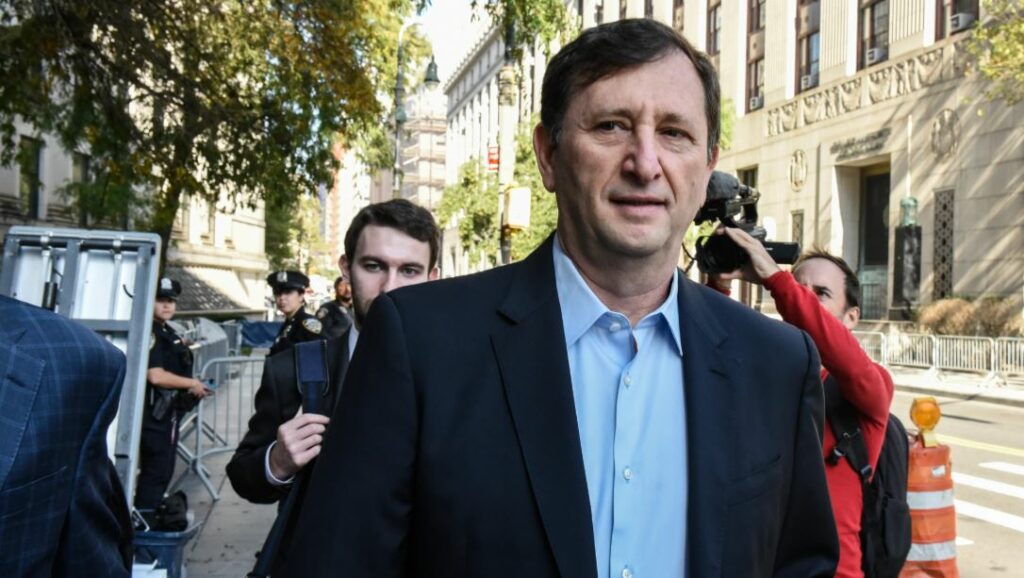
The crypto world continues to grapple with the fallout from Celsius Network’s collapse. Now, its former CEO, Celsius founder Alex Mashinsky, is at the center of a heated legal battle, as hundreds of victims demand a life sentence for his role in the platform’s downfall.

A Tidal Wave of Anger Before Sentencing
With Mashinsky’s sentencing scheduled for May 8, 2025, emotions are running high. Over 200 victim impact statements have been filed with U.S. District Judge John G. Koeltl. The vast majority of these letters plead for the harshest punishment possible, comparing Mashinsky to infamous fraudsters like Bernie Madoff.
One investor, Brandon Lawrence, who lost 1.5 Bitcoin (valued at approximately $141,000 today), wrote passionately about the devastation caused by the Celsius founder. Lawrence even highlighted that some victims were driven to suicide due to their financial losses, arguing that only a life sentence would deliver proper justice.
Guilty Plea and the Road to Sentencing
Alex Mashinsky pleaded guilty in late 2024 to two felony charges. He admitted that he misled customers about Celsius’s financial stability and used client funds to manipulate the price of CEL, the company’s native token.
Bryan Barrett, another affected investor, described the emotional and financial destruction the Celsius founder left in his wake. He emphasized the broader impact of the case, stating that a tough sentence is necessary to rebuild public trust in the justice system and to deter future corporate misconduct.
The Rise and Fall of Celsius
Celsius once stood as a giant in the crypto lending space. However, the firm’s reputation shattered during the “crypto winter” of 2022. In June 2022, Celsius froze customer withdrawals, trapping around $4.7 billion of user assets. Within weeks, the company filed for bankruptcy.
Celsius’s collapse triggered a domino effect across the crypto industry. Voyager Digital filed for bankruptcy soon after, followed by the downfall of hedge fund Three Arrows Capital. BlockFi, another major player, also collapsed later that year alongside FTX in November 2022.
Mashinsky’s dramatic fall symbolizes one of the most catastrophic failures in the history of digital finance.

Serious Charges and Damning Evidence
The Celsius founder’s legal troubles deepened in July 2023, when prosecutors indicted him on seven criminal counts, including wire fraud and market manipulation.
According to the U.S. Attorney’s Office for the Southern District of New York, Celsius executives knowingly inflated CEL’s value using customer funds. Internal communications showed that Roni Cohen-Pavon, Celsius’s then-Chief Revenue Officer, warned Mashinsky that “the value was fake,” confirming that only the company itself was buying CEL tokens to keep prices artificially high.
Meanwhile, the Celsius founder personally sold large amounts of his own CEL holdings while misleading the public about the asset’s true value.
These actions, prosecutors argue, not only betrayed Celsius’s customers but also destabilized trust in the broader crypto market.
A Push for Leniency?
Despite facing a maximum sentence of 30 years, the Celsius founder is seeking a lighter punishment. His legal team recently filed a motion to postpone sentencing, moving it from April 8 to May 8, 2025, to allow more time for presenting a detailed defense.
Mashinsky has also strengthened his legal team, hiring prominent attorneys Marc Mukasey and Torrey Young. Both are known for high-profile cases, including defending FTX co-founder Sam Bankman-Fried and working with the Trump Organization.
His defense will reportedly focus on mitigating factors surrounding his conduct, hoping to convince the court to reduce his sentence.
Victims Seek Accountability
For many Celsius customers, no legal defense can erase the damage Mashinsky has caused. Victims argue that the Celsius founder knowingly deceived people who trusted the platform with their savings.
As the court date approaches, pressure mounts on the judiciary to make an example of Mashinsky and send a strong message about accountability in the crypto industry.
For investors like Bryan Barrett, it’s not just about one man’s punishment. It’s about proving that when trust is broken, especially at such a massive scale, justice will be served with the severity it deserves.
The Bigger Picture for Crypto
Mashinsky’s trial serves as a warning to the broader digital asset sector. The case highlights the risks of unregulated markets and the importance of transparency and governance in the world of crypto finance.
As the U.S. government pushes for clearer regulations and consumer protections in digital finance, the outcome of this case could set important legal precedents for how future crypto fraud cases are handled.
The crypto industry, still recovering from the scandals of 2022 and 2023, is watching closely. Investors and innovators alike recognize that rebuilding trust requires not just innovation, but accountability too.























